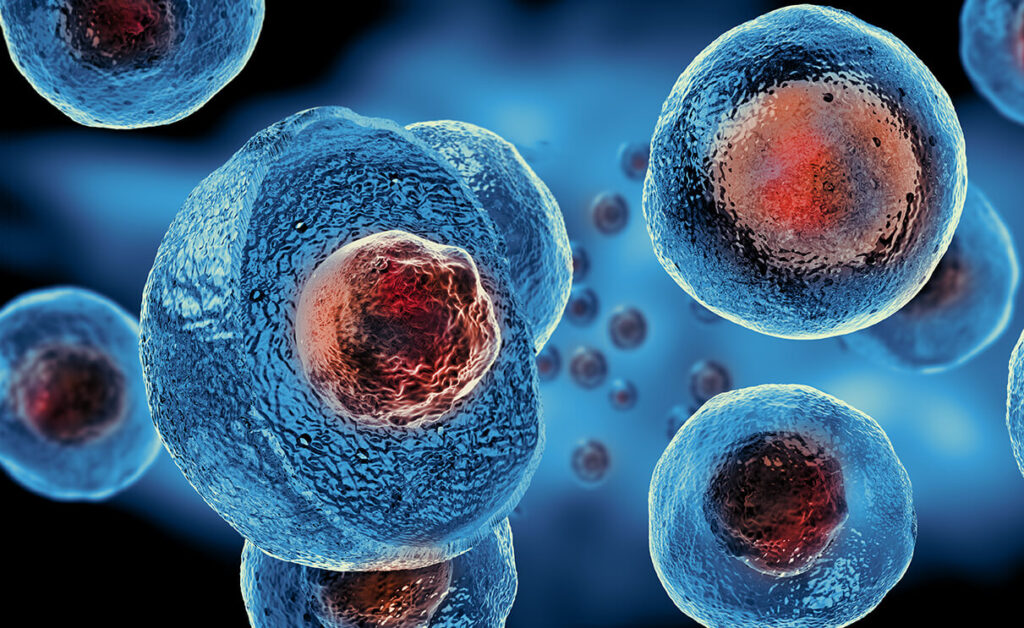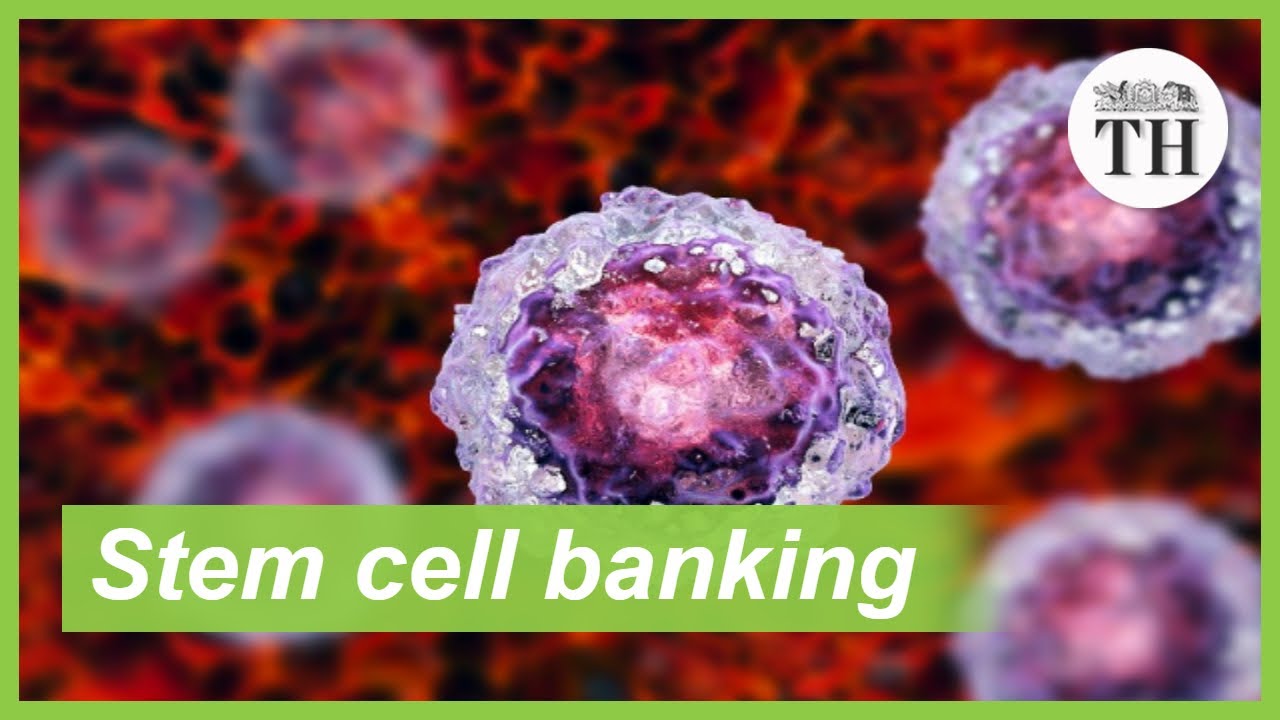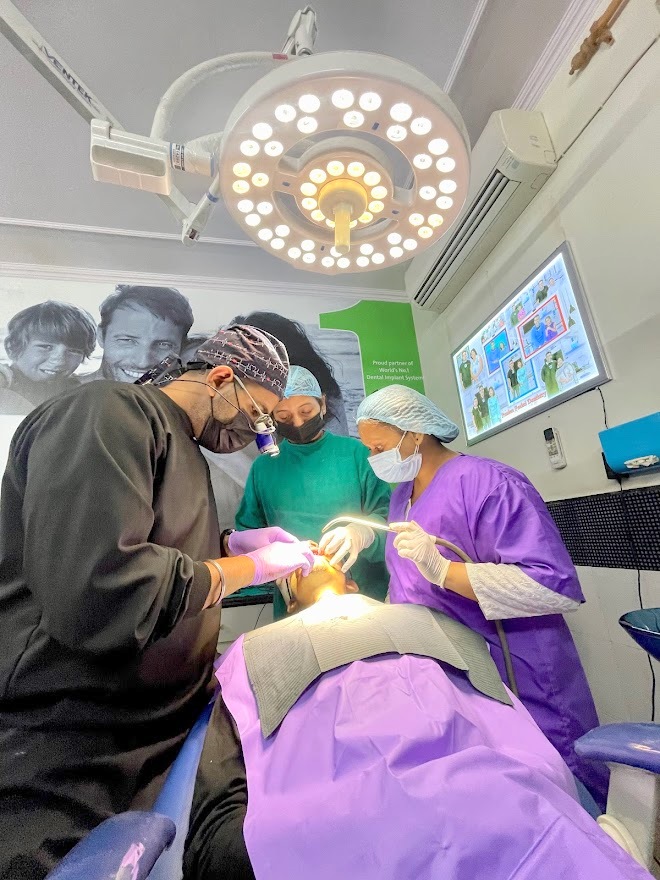
STEM CELL THERAPY
For most of us, stem cells are a new concept and although we have heard about it, we still do not possess enough information about it. If you have ever wondered what stem cells are, how they’re being used to treat disease and injury, why they’re the subject of such vigorous debate, and whether it can help you or your loved one fight a serious disease, this blog is for you.
Through this article, we have tried to cover the most frequently asked questions about stem cells and stem cell therapy.
Stem cells - body’s master cells
Stem cells are the basic cells from which all other cells of the body with specialized functions are generated. These stem cells have the capacity to divide and form multiple daughter cells. This generation of daughter cells require some favorable conditions, and if those conditions are present, these stem cells can divide in the body or even in the lab.
The daughter cells which are formed can again become new stem cells and continue to divide or they can differentiate further to assume a specific function, such as blood cells, brain cells, heart muscle cells or bone cells. No other cell in the body has the natural ability to generate new cell types.
The two unique features of a stem cell are perpetual self-renewal and the ability to differentiate into a specialized adult cell type. The unlimited self-renewal capacity of stem cells means that they can produce progeny exactly the same as the mother cell limitlessly.
There are two major classes of stem cells: pluripotent that can become any cell in the adult body, and multi-potent that are restricted to becoming a more limited population of cells.
Where do stem cells come from?
The general term, “stem cell” encompasses many distinct cell types. However, based on their source, they can be “embryonic,” and “adult” stem cells. These terms are used to distinguish stem cells by the developmental stage of the animal from which they come.
Embryonic stem cells come from embryos that are 3 to 5 days old. At this stage, an embryo is called a blastocyst and has about 150 cells. These cells are pluripotent in nature, means they are versatile enough to be differentiated into specialized cells or become daughter stem cells.
Adult stem cells more correctly termed “somatic” stem cells meaning “from the body”, are found in small numbers in most adult tissues, such as bone marrow or fat. As compared to embryonic stem cells, adult stem cells have a more limited ability to give rise to various cells of the body.
However these terms have not been encouraged now as new research has discovered how to turn fully differentiated adult cells back into embryonic stem cells and, conversely, adult stem cells, are found in the fetus, placenta, umbilical cord blood and infants.
Stem cells in dentistry

Teeth are the most natural, noninvasive source of stem cells. Dental stem cells are very promising modality to treat a variety of potential therapeutic applications as they are easy, convenient, and affordable to collect.
Although, the concept of tooth regeneration was proposed initially by stomatologist G. L. Feldman in 1932 through his ground-breaking work as he showed evidence of regeneration of dental pulp under certain optimal biological conditions. However, major breakthrough in dental history was achieved in year 2000 when Gronthos et al. identified and isolated stem cells in dental pulp. These cells were called as dental pulp stem cells (DPSCs).
Dental stem cells
Human dental stem cells that have been isolated and classified are:
- DPSCs. (Dental Pulp Stem Cells)
- SHED. (Stem Cells from Human Exfoliated Deciduous Teeth)
- SCAP (Stem Cells From Apical Papilla)
- PDLSC (Periodontal Ligament Stem Cells)
What is stem cell therapy?

Stem cell therapy is a form of regenerative medicine which is designed to repair damaged cells within the body by reducing inflammation and regulating the immune system.
By the help of this phenomenon, stem cell therapy has become an acceptable treatment option for a variety of medical conditions. Stem cell therapies have been used to treat wide range of disorders such as autoimmune, inflammatory, neurological, orthopedic conditions and traumatic injuries. Additionally, studies have also been done on the use of stem cells for the treatment of life-threatening diseases like Crohn’s disease, Multiple Sclerosis, Lupus, COPD, Parkinson’s, ALS, Stroke recovery and more.
However, it is to be understood that the stem cell therapy does not necessarily provide a cure for these conditions. The rationale behind using it is to allow the body to heal itself well enough to mitigate the symptoms of the conditions for longer periods. In many cases, this effect can substantially increase the quality of life for patients as well as delay disease progression.
How does stem cell therapy work?
Stem cell therapy works by promoting the repair potential of the diseased, dysfunctional or injured tissue using stem cells or their derivatives. You can understand this as an advanced concept of organ transplantation where in cells are used instead of donor organs, which are usually limited in supply.
Scientists have grown stem cells in laboratory by creating favorable conditions. These stem cells are then worked with so as to specialize into specific types of cells, such as heart muscle cells, blood cells or nerve cells. Now, these specialized cells can then be implanted into a person.
Let us take an example of a patient suffering with heart disease. Owing to the chronic disease, his heart muscle cells are already strained, injured or old. When the specialized new, young and healthy cells are injected into the heart, they contribute to repair the injured muscle cells and thus the organ can function better now.
Researchers have already shown that adult bone marrow cells guided to become heart-like cells can repair heart tissue in people, and more research is ongoing.
Doctors have been using stem cells to cure diseases for quite some time now. The most significant and lifesaving application is stem cell transplants or bone marrow transplants. In stem cell transplants, stem cells replace cells damaged by chemotherapy or disease or serve as a way for the donor’s immune system to fight some types of cancer and blood-related diseases, such as leukemia, lymphoma, neuroblastoma and multiple myeloma. These transplants use adult stem cells or umbilical cord blood.
Centers for stem cell therapy in India

- TATA MEMORIAL HOSPITAL, MUMBAI
This hospital has been a pioneer in stem cell therapy as the 1986 by Dr. Suresh Advani.
Tata Hospital is one of the oldest centers that provide hematopoietic stem cell transplant in India, and the best hospital to get other cancer treatments. Additionally, they have known to treat around one-third of the nation’s cancer patients that too at a very nominal rate. Annually, they perform more than 50 stem cell transplants.
Address: Dr. E Borges Road, Parel, Mumbai – 400 012
- NANAVATI HOSPITAL, MUMBAI
Nanavati Hospital was founded in 1950, inaugurated by the first Prime Minister of independent India Jawaharlal Nehru. It is situated in the heart of Mumbai near Vile Parle.
They have done over 300+ stem cell therapies in Blood Cancer treatments with an 80% success rate. They provide one of the best and affordable stem cell therapy in India compared to other hospitals in India. They are specialists in providing healthcare services such as Autologous Transplant, and Allogeneic transplants.
Address: Swami Vivekananda Marg, Vile Parle, West Mumbai, Maharashtra 400056
- RAJIV GANDHI CANCER INSTITUTE AND RESEARCH CENTER, DELHI
Rajiv Gandhi Cancer Institute & Research Centre is one of the largest cancer centers in Asia. It was founded in 1996 as a non-profit medical facility and research institute in Delhi.
This hospital has successfully performed more than 620 transplants which makes them one of the stem cell therapy best hospitals in India. Furthermore, it is equipped with the latest 11 HEPA Filtered units for stem cell transplant. It is one of the cost-efficient stem cell therapy centers in India as compared to private hospitals.
Address: Sir Chotu Ram Marg, Rohini Institutional Area, Sector 5, Rohini, New Delhi, Delhi 110085
- APOLLO HOSPITAL, CHENNAI
Apollo Hospitals are a chain of hospitals with their branches all over the country. However, Apollo Hospitals in Chennai, Tamil Nadu has performed the highest number of stem cell therapy in India.
Recently, they have reached a unique milestone of performing 1500 stem cell transplants on patients suffering from Blood Cancer from which 65% were paediatric cases.
Their stem cells varieties include autologous and allogenic stem cell therapies for diseases such as Hodgkin’s & Non-Hodgkin’s Lymphoma, Myeloma, Leukemia, Thalassemia, and Aplastic Anaemia.Trans Myocardial Revascularisation (TMR), a unique approach to treat heart diseases using autologous stem cells have also been practiced at this center.
Address: 21, Greams Lane, Off Greams Road, Chennai 600 006
- BLK SUPERSPECIALTY HOSPITAL, DELHI
BLK hospital is a well-known hospital for stem cell research and considered to be one of the best centers for stem cell transplant in India. They have the largest stem cell transplant unit in India as well as in Asia.
They offer both autologous & allogeneic stem cell transplant utilizing bone marrow, peripheral and cord blood stem cells.
Address: Pusa Rd., Radha Soami Satsang, Rajendra Place, New Delhi, Delhi 110005
- MAZUMDAR SHAW CANCER HOSPITAL
Mazumdar Shaw Cancer Centre was established in the year 2000 and till date, they have performed over 513 allogeneic, 182 autologous and 105 haploidentical making a total of 800 stem cell transplants.These transplants were performed on patients of varying age groups ranging from 4-month infants to 75-year-old adults.
Address: 258/A, Hosur Road Anekal, Taluk, Bommasandra Industrial Area, Bangalore, Karnataka 560 099
- AIIMS, DELHI
AIIMS does not need any introduction and well-known for its advanced researches, best team of doctors and state-of-the-art technology. Established in 1956, it is operated autonomously under the Ministry of Health & Family Welfare.It is the best center to provide stem cell facilities to underprivileged population due to its cost-efficiency. They are known to cater around 1.5 million outpatients and over 80,000 inpatients.
They also provide in-patient services such as CD 34/45 enumeration by Flowcytometry, Mononuclear cell separation from bone marrow & cord blood for clinical trials, Cryopreservation of Stem cells- Umbilical cord blood & bone marrow, Oral mucosal stem cell culture & Amniotic membrane cryopreservation for Ocular surface reconstruction.
- SL RAHEJA FORTIS HOSPITAL, MUMBAI
L. Raheja Fortis Hospital is situated in Mahim, Mumbai. It was established in 1975 and is a well-known center for Diabetes and Oncology.
They are known to treat blood cancer, kidney failure, Parkinson’s disease etc using stem cell therapy.
Address: Raheja Rugnalaya Marg, Mahim West, Mahim, Mumbai, Maharashtra 400 016
- JASLOK HOSPITAL, MUMBAI
Jaslok Hospital in situated in the heart of Mumbai and was inaugurated by Smt. Indira Gandhi.They have started stem cell therapy program in the oncology department in the year 2000 for a variety of malignant and non-malignant diseases. Moreover, they have achieved 60-80 % success rates in Thalassemia, Aplastic Anaemia, Leukaemia, etc.
Address: 15, Dr. Deshmukh Marg, Pedder Road, Mumbai, Maharashtra 400 026
- KOKILABEN DHIRUBHAI AMBANI HOSPITAL, MUMBAI
Kokilaben Dhirubhai Ambani Hospital is a multi-specialty hospital which was established in 2009 and is known largely for its advances in the field of hematology. The stem cell therapy units are equipped to serve transplant as an option for numerous acquired and congenital disorders for patients with different age groups.
Address: Rao Saheb, Achyut Rao Patwardhan Marg, Four Bungalows, Andheri West, Mumbai, Maharashtra 400053
The promises of cures for human diseases by stem cell therapy have been much touted but many obstacles must still be overcome. Dental clinicians should recognize the evolution of the regenerative dentistry field and take into consideration the possibility of acquiring stem cells during dental treatments (from deciduous teeth, third molars, and the gingiva), which can be stored for future autologous therapeutics.